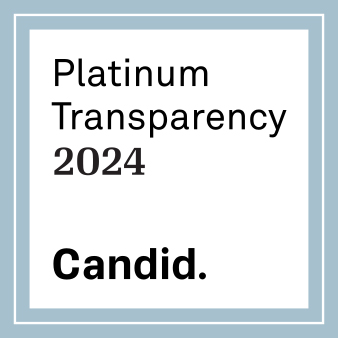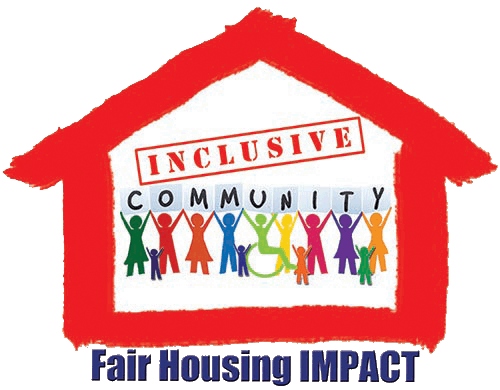 | Miami Valley Fair Housing Center |  | |||||
| info@mvfairhousing.com | ||||||
 |
MVFHC and Wells Fargo announce partnership to rebuild homeownership opportunities in the Miami Valley
Ground-breaking fair housing agreement covers marketing and maintenance of foreclosed properties
June 6, 2013 — The Miami Valley Fair Housing Center (MVFHC), together with the National Fair Housing Alliance (NFHA) and 12 other NFHA member organizations, announced a collaboration with Wells Fargo Bank, N.A. that will provide funds in 19 cities to foster homeownership, assist with rebuilding neighborhoods of color impacted by the foreclosure crisis, and promote diverse, inclusive communities.
Wells Fargo will provide $27 million to NFHA and the fair housing organizations to benefit 19 cities and promote home ownership, neighborhood stabilization, property rehabilitation, and development in communities of color.
MVFHC will receive $1,421,052 directly from Wells Fargo and will be responsible for managing the funds and providing a range of grants for items such as down payment assistance to owner-occupants seeking to purchase homes in the targeted neighborhoods as well as renovation efforts for homes that languished in foreclosure, including creative programs to increase homeownership and neighborhood stabilization.
“Many middle-class working people in the Dayton and Miami Valley region still face the threat of losing their homes, and many more have seen their property values plummet due to the foreclosure crisis,” said Jim McCarthy, MVFHC’s President/CEO. “Wells Fargo has established itself as a leader in an effort to ensure that REO properties are properly maintained and marketed no matter where they are located in our city.”
In addition to the Dayton area, the other 18 geographic areas included in the agreement with NFHA are: Atlanta, GA; Baltimore and Prince George’s County, MD; Baton Rouge, LA; Charleston, SC; Metropolitan Chicago and south Cook County, IL; Oakland and Richmond, CA; Dallas, TX; Denver, CO; Grand Rapids, MI; Indianapolis, IN; Miami, FL; Milwaukee, WI; Orlando, FL; Philadelphia, PA; Toledo, OH; and Washington, DC.
Real Estate Owned properties are homes that have gone through foreclosure and are now owned by banks, investors, Fannie Mae, Freddie Mac, the Federal Housing Administration, or the Department of Veterans Affairs.
“Many neighborhoods across the country have been seriously damaged by the foreclosure crisis, including the impact of REO homes on property values, curb appeal, and tax revenue for schools,” said Shanna Smith, NFHA’s President/CEO. “Our joint efforts will help to lay the foundation for the industry to get some of those neighborhoods back on their feet.”
Under the agreement, Wells Fargo has made a number of very important commitments that will benefit communities throughout the United States, including:
- Wells Fargo will pay $27 million to NFHA and the 13 fair housing organizations to assist 19 cities to promote home ownership, neighborhood stabilization, property rehabilitation, and development in communities of color.
- Wells Fargo will continue to implement best practices for the maintenance and marketing of its REO properties. A third party will monitor Wells Fargo’s portfolio of REO properties to ensure that Wells Fargo maintains and markets its REO properties according to the standards set forth in the agreement.
- Wells Fargo will enhance its Homeowner Priority program to give owner-occupants higher priority over investors in purchasing REOs. Wells Fargo will extend its Homeowner Priority period so that owner-occupants will have priority over investors to purchase Wells Fargo REO properties until the fifteenth day a property is on the market rather than the current twelve-day period.
- Wells Fargo will create a new five-day Homeowner Priority period every time there is a price reduction on a Wells Fargo REO home. Wells Fargo will give priority to owner-occupants who make offers that meet or exceed the price of offers from those who do not intend to live in the home.
- Wells Fargo will make it easier to get information about its REO properties. Wells Fargo has improved its web site and toll-free numbers to provide more information to prospective purchasers and anyone who wants to tell Wells Fargo about a problem with an REO property or an agent who is selling a Wells Fargo REO property.
- Wells Fargo and NFHA will sponsor two conferences designed to bring together approximately 100 industries and non-profit housing and real estate participants and regulatory agencies to discuss fair housing and its intersection with other current housing issues, including short sales, abandoned properties, and REO maintenance.
- In consultation with NFHA, Wells Fargo will develop a fair housing training program on REO issues for its employees who work on REO issues and for agents who sell Wells Fargo REO properties.
This is the first-ever agreement regarding the equal maintenance and marketing of REO homes. The agreement is the result of a federal housing discrimination complaint filed in April 2012 with the U.S. Department of Housing and Urban Development (HUD). The complaint alleged that Wells Fargo’s REO properties in white areas were much better maintained and marketed by Wells Fargo than REO properties in African-American and Latino neighborhoods.
In addition to the $27 million to promote homeownership, Wells Fargo will pay $3 million to NFHA and the 13 fair housing organizations for costs and damages, including diversion of resources incurred in connection with the investigations, and attorney fees. Wells Fargo is also committing $300,000 for the two national conferences and $250,000 to NFHA and local fair housing centers to hold seminars and address delinquencies and foreclosures.
Furthermore, Wells Fargo will provide an $11.5 million to HUD to support neighborhoods in an additional 25 cities: Austin, TX; Bakersfield, CA; Detroit, MI; Fort Lauderdale, FL; Fresno, CA; Houston, TX; Kansas City, MO; Las Vegas, NV; Los Angeles, CA; Memphis, TN; Modesto, CA; New York, NY; Phoenix, AZ; Riverside, CA; Sacramento, CA; San Antonio, TX; San Diego, CA; San Jose, CA; Santa Ana, CA; St. Louis, MO-IL; Stockton, CA; Tampa, FL; Vallejo, CA; Virginia Beach, VA; and West Palm Beach, FL.
The agreements between Wells Fargo, the private fair housing organizations, and HUD total more than $42 million and will provide direct assistance to 44 communities nationwide.
NFHA and the 13 local fair housing organizations are represented by Joseph M. Sellers and Peter Romer-Friedman of Cohen Milstein Sellers & Toll PLLC.
“This groundbreaking agreement is a testament to the fair housing movement’s vision and dedication to the promise of equality for all communities,” said Romer-Friedman. “This agreement will ensure that every community shares in the fruits of the housing recovery now underway.”
NFHA and its members have two similar housing discrimination complaints pending against U.S. Bank and Bank of America, filed in April 2012 and September 2012 respectively.
“Other banks should follow Wells Fargo’s lead and engage in broad relief to communities damaged by the foreclosure crisis,” continued Smith. “This is a huge step in the right direction and more is needed to get our neighborhoods, especially communities of color, back on their feet.”
The Fair Housing Act makes it illegal to discriminate based on race, color, national origin, religion, sex, disability or familial status, as well as the race or national origin of residents of a neighborhood. This law applies to housing and housing-related activities, which include the maintenance, appraisal, listing, marketing, and selling of homes.
Privacy Policy
Copyright 2003–2025 Miami Valley Fair Housing Center, Inc.
